Eric E. Wright's Blog, page 23
March 14, 2021
Are We Guilty Just Because of our Skin Colour?
Today’s radical justice warriors try to tell us that if we are white we are guilty of white supremacy; if male, of oppressive male patriarchy. Why? They have a theory that people are not only accountable for their own sins of oppression but for those of their ancestors and those of their whole racial grouping, if white. Supposedly, if our skin colour is white [Are there degrees of whiteness?] we belong to a race whose identity is defined by oppressing others. As a result, we have children being taught in school and youth in university that the overarching “truth” that explains life is that some are oppressors and some the oppressed, the victims.
oppressors and some the oppressed, the victims.
This is pure revisionist Marxism. Instead of promoting social harmony and progress this theory encourages victimology, social division, resentment, anger, jealousy and a host of other ills. The history of the 20th century under Nazism, Stalinism, and Maoism ought to have cured us from ideas such as Critical Race Theory.
 Sadly, this “truth” is being used to challenge the very foundations of western democracies. The goal seems to be to demolish societies based on the freedom and value of all individuals and instead divide people into classes, victims and oppressors. A new society is supposed to arise from the ashes when one class defined by skin colour accepts their guilt. And being part of that class of people who generations ago participated in historic wrongs, for example, slavery or colonialism, means they should accept and repent of their ancestral guilt.
Sadly, this “truth” is being used to challenge the very foundations of western democracies. The goal seems to be to demolish societies based on the freedom and value of all individuals and instead divide people into classes, victims and oppressors. A new society is supposed to arise from the ashes when one class defined by skin colour accepts their guilt. And being part of that class of people who generations ago participated in historic wrongs, for example, slavery or colonialism, means they should accept and repent of their ancestral guilt.
But what do Jeremiah and Ezekiel have to say about this totally unjust idea? The LORD declares, “In those days people will no longer say, ‘the fathers have eaten sour grapes, and the children’s teeth are set on edge.’ Instead, everyone will die for his own sin, whoever eats sour grapes —his own teeth will be set on edge” (Jer. 31:29,30). In other words, we will be held guilty for our own sins, not those of our fathers and forebears.
Ezekiel also clarifies the importance of personal not ancestral or class guilt. “The soul who sins is the one who will die. The son will not share the guilt of the father, nor will the father share the guilt of the son” (Ez. 18:20). It is not only irrational to keep charging the descendants of colonialists and slave-holders with personal guilt, but it is totally UNJUST.
UNJUST.
Western democracies have created the most prosperous and free societies in the history of the world. More than at any other time, people from with many skin colours and from many races have the opportunity to prosper. Of course, this does not mean that those of us living today should not do all in our power to alleviate any injustices we see. We should all work to demolish inequities that hinder personal thriving. Social progress must continue with freedom and opportunity for all.
But you say, did Exodus and Deuteronomy not say that the LORD is “punishing the children for the sins of the fathers to the third and fourth generation of hose who hate me” (Deut. 5:9. See also Ex. 20:5) We must not misunderstand this. The only sense in which guilt is passed on from generation to generation occurs when descendants deliberately or unconsciously adopt the sinful patterns of their forbears. Ezekiel explains that a child is free of parental guilt who “sees the sins his father commits, and …does not do such things” (Ez. 18:14).
 Sadly, as I have seen in a number of people I know, hatred of God or denial of God is passed down from father to child to grandchildren. Bad habits and ideas are also passed on. Children of alcoholics may inherit their parents’ addiction to booze, or swearing, or cheating on taxes, or immorality or a hundred other evils. But each of us personally must choose to reject any pattern we see in our parents that is unjust or evil. We will be called to give an account for our own lives.
Sadly, as I have seen in a number of people I know, hatred of God or denial of God is passed down from father to child to grandchildren. Bad habits and ideas are also passed on. Children of alcoholics may inherit their parents’ addiction to booze, or swearing, or cheating on taxes, or immorality or a hundred other evils. But each of us personally must choose to reject any pattern we see in our parents that is unjust or evil. We will be called to give an account for our own lives.
Charging individuals of a particular race with guilt by association with their ancestors is totally racist.
(Let me know your thoughts on this subject. If you appreciate this blog, please pass it on. Further articles, books, and stories at: http://www.countrywindow.ca Facebook: Eric E Wright Twitter: @EricEWright1 LinkedIn: Eric Wright ––)
stories at: http://www.countrywindow.ca Facebook: Eric E Wright Twitter: @EricEWright1 LinkedIn: Eric Wright ––)
March 6, 2021
Justice Delayed Means God’s Longsuffering Extended
Injustice—whether among our indigenous people or in Yemen, Russia or Myanmar—may move us to cry, “Why doesn’t God do something?” In a recent incident, hundreds of schoolgirls were kidnapped by Boko Haram in Nigeria. Hundreds of those kidnapped in previous years have still not been found. Why doesn’t God stop this evil?
incident, hundreds of schoolgirls were kidnapped by Boko Haram in Nigeria. Hundreds of those kidnapped in previous years have still not been found. Why doesn’t God stop this evil?
On a personal level we pray over years for the salvation of loved ones and the heavens seem brass. Why? We pray for revival and instead complacency spreads. Why?
Part of the answer to our perplexity is that God’s expects us to step up and act, to witness to our loved ones. Perhaps we should write letters urging politicians to act. But sometimes there is nothing we can do but continue to pray.
 Strange as it may seem, God’s apparent delay in acting is due to his goodness as expressed in his longsuffering. God’s delay in pouring judgment on evil is not because he can’t but because he longs for people to repent and be saved.
Strange as it may seem, God’s apparent delay in acting is due to his goodness as expressed in his longsuffering. God’s delay in pouring judgment on evil is not because he can’t but because he longs for people to repent and be saved.
In the Old Testament we read repeatedly of God’s patience with rebellious Israel. Even after being delivered from Egyptian slavery through mighty miracles, the nation complained in the desert. The book of Judges recounts seven spirals of descent into idolatry and oppression by cruel nations followed by Israel’s appeal for God’s deliverance. Each time God sent a deliverer, but shortly thereafter the nation again degenerated.
The book of Jonah describes God’s directive that the prophet Jonah go to Nineveh and call them to repentance. We read of Jonah’s flight from the divine commission due to his hatred of Nineveh. We can understand his desire to see this wicked, cruel nation destroyed. He didn’t want to see them having any chance of repentance. He said, “I knew that you are a gracious and compassionate God, slow to anger and abounding in love, a God who relents from sending calamity” (Jonah 4:2). Too often we fail to appreciate God’s long suffering.
suffering.
Fifteen hundred years after giving the law to Moses and seeing Israel rebel again and again, “in the fulness of time” Jesus was born. What a long-suffering God! Long-suffering in Hebrew means; long breathe.
But even when Jesus, the Saviour came God was not in a hurry. It wasn’t until Jesus was 30 that God sent him into kingdom ministry. Then he embraced the cross. No quick death. Six hours of agony bearing our sins. The long-suffering Jesus.
Romans 1-3 sketches human sinfulness in searing terms. Then Paul warns his readers, do you think “you will escape God’s judgement? Or do you show contempt for the riches of his kindness, tolerance and patience, not realizing that God’s kindness leads you towards repentance” (Rom. 2:2-4)?
 Peter gives a similar warning to those who scoffed at the delay in the coming of God’s Day of Judgement. “The Lord is not slow in keeping his promise as some understand slowness. He is patient with you, not wanting anyone to perish” (2 Peter 3:9).
Peter gives a similar warning to those who scoffed at the delay in the coming of God’s Day of Judgement. “The Lord is not slow in keeping his promise as some understand slowness. He is patient with you, not wanting anyone to perish” (2 Peter 3:9).
How fortunate we are for the long suffering of God! Even after we are saved from the consequence of our sins by being forgiven, we still struggle day by day to throw off their cloying presence. Our sanctification is a long process. We pray for patience, love, and control of our tongues and then we stick our foot in our mouth again. Fortunately, God is there to forgive us in Jesus’ name. God is so-o-o patient with us. Why? Because he loves us.
Lord, help us to celebrate your longsuffering love but not take advantage of your patience by becoming careless and complacent.
(Let me know your thoughts on this subject. If you appreciate this blog, please pass it on. Further articles, books, and stories at: http://www.countrywindow.ca Facebook: Eric E Wright Twitter: @EricEWright1 LinkedIn: Eric Wright ––)
pass it on. Further articles, books, and stories at: http://www.countrywindow.ca Facebook: Eric E Wright Twitter: @EricEWright1 LinkedIn: Eric Wright ––)
February 24, 2021
What Makes a Nation Great?
The mark of a great society is not its GDP, gross domestic product. Neither is it the size of its standing army. Nor its power and prestige in the world. The mark of a great society is the mercy and compassion it shows towards the unfortunate, the poor, and the elderly.
 The actions and attitudes of nations are irresistibly linked to their beliefs. I have been posting a series on the attributes of God and the moral framework He has revealed to guide mankind, because as belief in God declines so does our nation’s moral fabric. We imitate what we most admire.
The actions and attitudes of nations are irresistibly linked to their beliefs. I have been posting a series on the attributes of God and the moral framework He has revealed to guide mankind, because as belief in God declines so does our nation’s moral fabric. We imitate what we most admire.
Sadly, the mark left by many nations in the twentieth century has been cruelty, oppression, war and outright evil. Think Hitler, Stalin, Mao, Pol Pot, Idi Amin and many others whose motivating principles were derived from belief in evolution and atheism more than faith in God. So far, the direction of the 21st century is not encouraging. Nations seem more bent on increasing GDP and countering climate change than fostering compassion.
A compassionate society is God-honouring society. Why? Because such a society imitates God who has revealed himself as merciful and compassionate.
The founders of the U.S. and those who established Canada understood the connection between God and greatness. The U.S. constitution recognizes this truth as does the motto on U.S coins, “In God we trust.”
In Canada, every time we sing O Canada, we declare an awareness of God’s role. We sing, “God keep our land glorious and free! O Canada, we stand on guard for thee.” Three Bible verses have been carved in stone onto the exterior of the Peace Tower. The most well-known of these three verses is also Canada’s motto: ”He shall have dominion also from sea to sea” (Psalm 72:8). The preamble to the constitution states; “Whereas Canada is founded upon principles that recognize the supremacy of God and the rule of law.” (See https://www.niagaradeclaration.ca/ )
We sing, “God keep our land glorious and free! O Canada, we stand on guard for thee.” Three Bible verses have been carved in stone onto the exterior of the Peace Tower. The most well-known of these three verses is also Canada’s motto: ”He shall have dominion also from sea to sea” (Psalm 72:8). The preamble to the constitution states; “Whereas Canada is founded upon principles that recognize the supremacy of God and the rule of law.” (See https://www.niagaradeclaration.ca/ )
 In spite of our founding documents, both of our countries have been rapidly moving away from maintaining a connection between greatness and godliness. In Canada, why have we taken so long to ensure that our indigenous people have clean drinking water and good schools? In both our countries why have the elderly in long term care homes suffered so disproportionately from Covid-19? Why have those in low- income communities suffered so badly? Will Covid-19 shame us as a society into becoming more compassionate?
In spite of our founding documents, both of our countries have been rapidly moving away from maintaining a connection between greatness and godliness. In Canada, why have we taken so long to ensure that our indigenous people have clean drinking water and good schools? In both our countries why have the elderly in long term care homes suffered so disproportionately from Covid-19? Why have those in low- income communities suffered so badly? Will Covid-19 shame us as a society into becoming more compassionate?
If we want to see our countries to become great again, each of us will imitate God by being merciful and compassionate. Mercy is the goodness of God expressed towards the unfortunate, poor, oppressed, bereaved, and fatherless. The Hebrew word racham means to ENFOLD WITH LOVE, TO CHERISH. God loves to enfold the unfortunate with his arms of compassion.
The Son of God came down to earth to show us the way. He demonstrated God’s mercy and compassion throughout his ministry. Jesus stood in a synagogue in Nazareth and read from Isaiah a prophecy about himself. “The Spirit of the Lord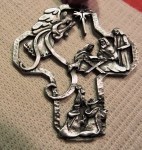 is on me because he has anointed me to preach good news to the poor, He has sent me to proclaim freedom for the prisoners, and recovery of sight for the blind, to release the oppressed.” (Luke 4:18,19).
is on me because he has anointed me to preach good news to the poor, He has sent me to proclaim freedom for the prisoners, and recovery of sight for the blind, to release the oppressed.” (Luke 4:18,19).
Take one New Testament chapter as an example. In Mark 1 we find Jesus casting out an evil spirit, healing Simon’s mother-in-law, and delivering many from their infirmities. “A man with leprosy came to him and begged him on his knees, If you are willing, you can make me clean. Filled with compassion, Jesus reached out his hand and touched the man. I am willing he said. Be clean! (Mark 1:40,41). Untold thousands felt his healing touch or heard his healing words. Let’s pray for a renewed interest in Jesus Christ and in reading the New Testament.
 Mercy and compassion does not end with care for our physical bodies but extends to care for our eternal souls. How terrible if we feed and heal people only to leave them unprepared for the gloom and horror of eternal judgement. To be prepared to face God’s judgement seat, people need the good news of the gospel. Jesus died for our sins and rose again to save us. And so we must pray for God to send evangelists throughout our lands. We must pray for spiritual revival to touch all our churches and overflow into our communities. May it be so, Lord!
Mercy and compassion does not end with care for our physical bodies but extends to care for our eternal souls. How terrible if we feed and heal people only to leave them unprepared for the gloom and horror of eternal judgement. To be prepared to face God’s judgement seat, people need the good news of the gospel. Jesus died for our sins and rose again to save us. And so we must pray for God to send evangelists throughout our lands. We must pray for spiritual revival to touch all our churches and overflow into our communities. May it be so, Lord!
(Let me know your thoughts on this subject. If you appreciate this blog, please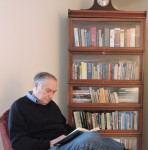 pass it on. Further articles, books, and stories at: http://www.countrywindow.ca Facebook: Eric E Wright Twitter: @EricEWright1 LinkedIn: Eric Wright ––)
pass it on. Further articles, books, and stories at: http://www.countrywindow.ca Facebook: Eric E Wright Twitter: @EricEWright1 LinkedIn: Eric Wright ––)
February 19, 2021
The Great Reset-Part II: Stakeholder Capitalism or Neo-Marxism?
 As a guest blogger, Kamiel Gabriel continues to summarize the World Economic Forum at Davos Switzerland in this second part of his series.One of the most promoted ideas at the 2021 Davos meeting by its founder, Professor. Klaus Schwab, is what he coined “Stakeholder Capitalism”. In his newly released book carrying the same title, he explains his concept as:“Stakeholder capitalism is a form of capitalism in which companies seek long-term value creation by taking into account the needs of all their stakeholders, and society at large. We are facing a whole set of social, economic, and health crises, and the best response to these challenges, would be for all actors in society to consider more than their narrow and short-term self-interest.”He adds :“To ensure that both people and the planet prosper, four key stakeholders play a crucial role. They are: governments; civil society; companies; and the international community (e.g., the United Nations).”While much of what has been promoted might be seen at the surface as laudable efforts to “level the playing field”, the initiative goes much deeper than that. At its roots, what is proposed is in fact a neo-Marxism. Marxism is a political and economic way of organizing society, where the workers own the means of production. Socialism is a way of organizing a society in which the means of production are owned and controlled by the proletariat.According to Investopedia, Marxism posits that the struggle between social classes, specifically between the bourgeoisie (capitalists), and the proletariat (workers) defines economic relations in a capitalist economy and will inevitably lead to revolutionary communism. Marx proposed that this was the next necessary step in the progress of history. He argued for a worker revolution to overturn capitalism in favor of communism.Marx’s class theory portrays capitalism as one step in the historical progression of economic systems that follow one another in a natural sequence. They are driven, he posited, by vast impersonal forces of history that play out through the behavior and conflict among social classes. According to Marx, every society is divided among a number of social classes, whose members have more in common with one another than with members of other social classes.The difference between Marxism and what Professor Schwab promotes is that in the new Stakeholder Capitalism, the economic and social driving forces will be handed out to a small number of elites. Such elites are expected to unite in thought and actions to set up the new world order in which economic, social and environmental progress is realized according to new rules, policies and regulations. Such new rules allow the orchestrators of the new system full control while the majority of people will be expected to simply follow.In all western democracies, the last few generations have seen a shift in decision-making away from legislature, which are more responsive to ordinary voters, and toward institutions like the executive branch, the judiciary and the Supreme Court. Therefore, there is a shift of power away from the most accountable parts of government. As Dr. Larry Arnn, President of Hillsdale College, so eloquently wrote :“The spirit of remaking nature-including human nature-greatly emboldens both human beings and governments. Imbued with that spirit, and employing the tools of modern science, totalitarianism is a form of government that reaches farther than tyranny and attempts to control the totality of things.”There is a strange anomaly here. Working class people “tend to be somewhat to the left on economics. They favor more welfare spending, higher minimum wage, more social security, more health care spending. [but] They are a bit more conservative…on social and sexual issues.” This cultural conservatism is not a racial issue. “A lot of morally conservative people- many of whom are non-white…feel that their viewpoint as traditionalist or as religious people is not represented in the commercial mass media.”In his recently published book , American political scientist Michael Lind asserts that “the top 10% or so of the population, particularly those with advanced graduate and professional degrees, dominate the public, private and non-profit sectors in the US and other Western democracies.” So the big divide is not between the left and the right but between the elites and the working class majority. “Many of the policies that are preferred by the managerial elite…are very unpopular with the voters.”
As a guest blogger, Kamiel Gabriel continues to summarize the World Economic Forum at Davos Switzerland in this second part of his series.One of the most promoted ideas at the 2021 Davos meeting by its founder, Professor. Klaus Schwab, is what he coined “Stakeholder Capitalism”. In his newly released book carrying the same title, he explains his concept as:“Stakeholder capitalism is a form of capitalism in which companies seek long-term value creation by taking into account the needs of all their stakeholders, and society at large. We are facing a whole set of social, economic, and health crises, and the best response to these challenges, would be for all actors in society to consider more than their narrow and short-term self-interest.”He adds :“To ensure that both people and the planet prosper, four key stakeholders play a crucial role. They are: governments; civil society; companies; and the international community (e.g., the United Nations).”While much of what has been promoted might be seen at the surface as laudable efforts to “level the playing field”, the initiative goes much deeper than that. At its roots, what is proposed is in fact a neo-Marxism. Marxism is a political and economic way of organizing society, where the workers own the means of production. Socialism is a way of organizing a society in which the means of production are owned and controlled by the proletariat.According to Investopedia, Marxism posits that the struggle between social classes, specifically between the bourgeoisie (capitalists), and the proletariat (workers) defines economic relations in a capitalist economy and will inevitably lead to revolutionary communism. Marx proposed that this was the next necessary step in the progress of history. He argued for a worker revolution to overturn capitalism in favor of communism.Marx’s class theory portrays capitalism as one step in the historical progression of economic systems that follow one another in a natural sequence. They are driven, he posited, by vast impersonal forces of history that play out through the behavior and conflict among social classes. According to Marx, every society is divided among a number of social classes, whose members have more in common with one another than with members of other social classes.The difference between Marxism and what Professor Schwab promotes is that in the new Stakeholder Capitalism, the economic and social driving forces will be handed out to a small number of elites. Such elites are expected to unite in thought and actions to set up the new world order in which economic, social and environmental progress is realized according to new rules, policies and regulations. Such new rules allow the orchestrators of the new system full control while the majority of people will be expected to simply follow.In all western democracies, the last few generations have seen a shift in decision-making away from legislature, which are more responsive to ordinary voters, and toward institutions like the executive branch, the judiciary and the Supreme Court. Therefore, there is a shift of power away from the most accountable parts of government. As Dr. Larry Arnn, President of Hillsdale College, so eloquently wrote :“The spirit of remaking nature-including human nature-greatly emboldens both human beings and governments. Imbued with that spirit, and employing the tools of modern science, totalitarianism is a form of government that reaches farther than tyranny and attempts to control the totality of things.”There is a strange anomaly here. Working class people “tend to be somewhat to the left on economics. They favor more welfare spending, higher minimum wage, more social security, more health care spending. [but] They are a bit more conservative…on social and sexual issues.” This cultural conservatism is not a racial issue. “A lot of morally conservative people- many of whom are non-white…feel that their viewpoint as traditionalist or as religious people is not represented in the commercial mass media.”In his recently published book , American political scientist Michael Lind asserts that “the top 10% or so of the population, particularly those with advanced graduate and professional degrees, dominate the public, private and non-profit sectors in the US and other Western democracies.” So the big divide is not between the left and the right but between the elites and the working class majority. “Many of the policies that are preferred by the managerial elite…are very unpopular with the voters.”
February 16, 2021
What in the World is Happening?
 Dr. Gabriel writes: As a result of COVID-19, nations around the globe are experiencing unprecedented changes socially, economically, and environmentally. In particular, titanic shifts in the labour, financial and medical fields in response to the global pandemic have created a platform for world leaders and business influencers to discuss a new global order to collectively and more effectively coordinate efforts to deal with similar worldwide crises.In this blog, I introduce the first part of a series aimed at informing the reader of what has been promoted as “The Great Reset”. This initiative by the World Economic Forum is aimed at creating a new global order to more effectively combat future financial, environmental and health related crises . This is a must read for those who keep a watchful eye on world events.The Great Reset-Part I: OverviewThe World Economic Forum (WEF) is in its 51st year and, for the first time, met virtually during the week of January 24, 2021. Every year, the Forum attracts world leaders and business influencers who gather in the Alpine city of Davos, Switzerland. It is often used as a platform for world leaders to discuss pressing issues such as eliminating world poverty, combating climate change, aids to third world countries, economic forecast, future cities, protection against cybercrime, etc. They also use the occasion to launch new initiatives or revisit and redefine their approach to older ones. A lot of schmoozing and backroom discussions take place among world leaders and industry influencers during the weeklong business retreat with exuberant gatherings and cocktail parties. This year, the Forum’s founder, Professor Klaus Schwab, has been promoting what has become his mantra, The Great Reset. The initiative is described on the WEF website as follows:“The world is at a historic crossroads, as economies everywhere attempt to pull themselves out of a COVID-19-induced hiatus. The damage inflicted has been horrific in terms of lives taken and livelihoods lost. However, it also presents an opportunity to rebuild in a more inclusive and responsible way. Coronavirus-related lockdowns provided a glimpse of what is possible in terms of limiting pollution, and the pandemic’s human toll illustrated what can happen when healthcare systems and social safety nets are neglected. Now, it is up to leaders in the private and public sectors to seize the moment and help create a more equitable and sustainable society.”At the heart of the initiative is the devastating effects of climate change which some are promoting as the onset of many diseases and health crises like COVID-19. In a web-like demonstration of what areas are covered under the initiative, WEF lists things such as developing sustainable business models; harnessing the 4th industrial revolution; revitalizing global cooperation; strengthening regional development; redesigning social contracts, skills and jobs; shaping the economic recovery and restoring the health of the environment.On the matter of sustainable business models, the authors argue that “The COVID-19 crisis has highlighted many ways to do business more responsibly once the pandemic recedes. The cost of continuing with business as usual after COVID-19, without shifting investment from polluting fossil fuels to clean renewable energy, will only lead to further crises.” On social issues, they claim that, “The pandemic has laid bare the inequalities that create unnecessary suffering and hardship. The spread of COVID-19 magnified the tenuous existence of many workers, and the inequality that plagues many societies.”With regards to the environment, the Forum asserts that: “Mobility restrictions gave us a glimpse of what is possible. As stay-at-home measures were implemented around the world in a bid to curb the spread of the coronavirus, the internet was populated with startling pictures of pristine skies over Los Angeles, suddenly-apparent Himalayan mountain peaks in India, and satellite images of declining pollution over China.” They suggested that, in order for this “environmental healing” to continue in post pandemic era, people in major cities must embrace other transportation methods such as cycling with municipalities redesigning their regions for better cycling routes, etc.In terms of harnessing new technologies afforded by the 4th industrial revolution, the authors emphasized that, “Technology can be a tool for positive change as we rebuild after the pandemic. As the COVID-19 pandemic spread it triggered a wave of potentially dangerous misinformation online. It also underlined both the potential benefits – and the potential privacy concerns – related to technologies capable of tracking a person’s location. Around the world, the technologies powering the Fourth Industrial Revolution played both positive and negative roles as countries grappled with one of the gravest global health crises in modern history.”To be continued…
Dr. Gabriel writes: As a result of COVID-19, nations around the globe are experiencing unprecedented changes socially, economically, and environmentally. In particular, titanic shifts in the labour, financial and medical fields in response to the global pandemic have created a platform for world leaders and business influencers to discuss a new global order to collectively and more effectively coordinate efforts to deal with similar worldwide crises.In this blog, I introduce the first part of a series aimed at informing the reader of what has been promoted as “The Great Reset”. This initiative by the World Economic Forum is aimed at creating a new global order to more effectively combat future financial, environmental and health related crises . This is a must read for those who keep a watchful eye on world events.The Great Reset-Part I: OverviewThe World Economic Forum (WEF) is in its 51st year and, for the first time, met virtually during the week of January 24, 2021. Every year, the Forum attracts world leaders and business influencers who gather in the Alpine city of Davos, Switzerland. It is often used as a platform for world leaders to discuss pressing issues such as eliminating world poverty, combating climate change, aids to third world countries, economic forecast, future cities, protection against cybercrime, etc. They also use the occasion to launch new initiatives or revisit and redefine their approach to older ones. A lot of schmoozing and backroom discussions take place among world leaders and industry influencers during the weeklong business retreat with exuberant gatherings and cocktail parties. This year, the Forum’s founder, Professor Klaus Schwab, has been promoting what has become his mantra, The Great Reset. The initiative is described on the WEF website as follows:“The world is at a historic crossroads, as economies everywhere attempt to pull themselves out of a COVID-19-induced hiatus. The damage inflicted has been horrific in terms of lives taken and livelihoods lost. However, it also presents an opportunity to rebuild in a more inclusive and responsible way. Coronavirus-related lockdowns provided a glimpse of what is possible in terms of limiting pollution, and the pandemic’s human toll illustrated what can happen when healthcare systems and social safety nets are neglected. Now, it is up to leaders in the private and public sectors to seize the moment and help create a more equitable and sustainable society.”At the heart of the initiative is the devastating effects of climate change which some are promoting as the onset of many diseases and health crises like COVID-19. In a web-like demonstration of what areas are covered under the initiative, WEF lists things such as developing sustainable business models; harnessing the 4th industrial revolution; revitalizing global cooperation; strengthening regional development; redesigning social contracts, skills and jobs; shaping the economic recovery and restoring the health of the environment.On the matter of sustainable business models, the authors argue that “The COVID-19 crisis has highlighted many ways to do business more responsibly once the pandemic recedes. The cost of continuing with business as usual after COVID-19, without shifting investment from polluting fossil fuels to clean renewable energy, will only lead to further crises.” On social issues, they claim that, “The pandemic has laid bare the inequalities that create unnecessary suffering and hardship. The spread of COVID-19 magnified the tenuous existence of many workers, and the inequality that plagues many societies.”With regards to the environment, the Forum asserts that: “Mobility restrictions gave us a glimpse of what is possible. As stay-at-home measures were implemented around the world in a bid to curb the spread of the coronavirus, the internet was populated with startling pictures of pristine skies over Los Angeles, suddenly-apparent Himalayan mountain peaks in India, and satellite images of declining pollution over China.” They suggested that, in order for this “environmental healing” to continue in post pandemic era, people in major cities must embrace other transportation methods such as cycling with municipalities redesigning their regions for better cycling routes, etc.In terms of harnessing new technologies afforded by the 4th industrial revolution, the authors emphasized that, “Technology can be a tool for positive change as we rebuild after the pandemic. As the COVID-19 pandemic spread it triggered a wave of potentially dangerous misinformation online. It also underlined both the potential benefits – and the potential privacy concerns – related to technologies capable of tracking a person’s location. Around the world, the technologies powering the Fourth Industrial Revolution played both positive and negative roles as countries grappled with one of the gravest global health crises in modern history.”To be continued…
February 14, 2021
Do Good Things Come From Amazon, or Where?
 Do you enjoy a fresh ripe peach or a mango? How about T-bone steak or farm-fresh corn-on-the-cob or chocolate? Do you love to hear a baby gurgle and laugh? Do you celebrate a mother’s love?
Do you enjoy a fresh ripe peach or a mango? How about T-bone steak or farm-fresh corn-on-the-cob or chocolate? Do you love to hear a baby gurgle and laugh? Do you celebrate a mother’s love?
Where do all these good things come from? “Every good and perfect gift comes from the Father of lights with whom is no variableness neither shadow cast by turning” (James 1:17). “The earth is full of his goodness” (Ps.33:5). Every morning and evening we should lift our voice in thanksgiving to our Good God.
In my blogs about the attributes of God, I’ve come to his goodness. So far, we’ve considered that God is infinite, eternal and unchangeable in his wisdom, power, holiness, justice and truth. David describes God’s goodness; “the LORD is gracious and compassionate, slow to anger and rich in love. The LORD is good to all; he has compassion on all he has made” (Psalm 145:8,9). God’s goodness can be broken down into five qualities:
gracious and compassionate, slow to anger and rich in love. The LORD is good to all; he has compassion on all he has made” (Psalm 145:8,9). God’s goodness can be broken down into five qualities:
 First, consider his universal kindness to everyone. “God causes his sun to shine on the righteous and the unrighteous, his rain to fall on good and bad” (Matt. 5:45). His sunshine warms everyone. His rain waters the farms of the good and the evil. God is the source of anything that is good in this world. The gifts of family love and friendship, the foods we enjoy and the talents and skills he bestows on all.
First, consider his universal kindness to everyone. “God causes his sun to shine on the righteous and the unrighteous, his rain to fall on good and bad” (Matt. 5:45). His sunshine warms everyone. His rain waters the farms of the good and the evil. God is the source of anything that is good in this world. The gifts of family love and friendship, the foods we enjoy and the talents and skills he bestows on all.
Even in the poorest and most desolate places he demonstrates his goodness. When we were missionaries in Pakistan, we would visit the villages of subsistence farmers on the edge of the Rajasthan desert. There we would see children laughing and playing, the love of husbands and wives, the enjoyment of a simple meal of curried new potatoes where meat could not be afforded. We might have the king of fruits, mangoes, for dessert.
a simple meal of curried new potatoes where meat could not be afforded. We might have the king of fruits, mangoes, for dessert.
Evil and injustice occurs everywhere due to the free choices of fallen sinners. Jesus experienced it in the jealousy and hatred of the Pharisees who ultimately handed him over to death. But shortly after listening to their criticism again, Jesus looked at the gathered crowd and said, “I have compassion on these people.” His love was indiscriminate for both wicked plotters and disciples; for Pharisees, Sadducees, Scribes, tax -collectors and harlots.

“Taste and see that the Lord is good, blessed is the man who takes refuge in him” (Psalm 34:8). “The earth is full of his unfailing love” (Psalm 33:5). Are we moaning and groaning? Do we feel sorry for ourselves? Let’s pause and take inventory and offer thanksgiving to God for all his good gifts.
(Let me know your thoughts on this subject. If you appreciate this blo g, please pass it on. Further articles, books, and stories at my website: http://www.countrywindow.ca Facebook: Eric E Wright ;Twitter: @EricEWright1 ;LinkedIn: Eric Wright ––)
g, please pass it on. Further articles, books, and stories at my website: http://www.countrywindow.ca Facebook: Eric E Wright ;Twitter: @EricEWright1 ;LinkedIn: Eric Wright ––)
February 8, 2021
Does anyone worry about Truth anymore?
A story is told of an auto race between Americans and Russians. On the day of the race two cars tore down the track. The American car won by inches. In Pravda it was reported; “Russia and the U.S. cometed in a long-awaited race yesterday afternoon. Both cars broke all former speed records. The Soviets came in second, and the Americans finished next to last.”
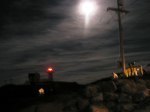 There are many ways to spin facts; by exaggerating, by rearranging events, by leaving out part of the story. The result is the same. A lie. In this period of history it is as if the 9th commandment doesn’t exist, “you shall not bear false witness.” News which used to exist to report the facts has become agenda-driven. In US election reporting who can we believe?
There are many ways to spin facts; by exaggerating, by rearranging events, by leaving out part of the story. The result is the same. A lie. In this period of history it is as if the 9th commandment doesn’t exist, “you shall not bear false witness.” News which used to exist to report the facts has become agenda-driven. In US election reporting who can we believe?
We are reaping the result of “post modernism”, the philosophy of much of the late twentieth century. Truth is whatever you want it to be. If I love someone other than my wife, it’s okay to leave my wife because love—really lust— supersedes my marriage promise. If having the baby in my womb is inconvenient, I’ll just call it biological tissue and abort it. If I’m a biological male but feel like I want to be a woman, I’ll just make up a name of me and demand my rights to lesbian, gay, bi-sexual, trans; whatever.
my rights to lesbian, gay, bi-sexual, trans; whatever.
In a sense this is not new. In the Garden of Eden Satan whispered to Eve; “hath God said you shall not eat of the tree–God knows that if you eat you will be like God.” A gigantic lie. From the fall of Adam and Eve, it has been true, “the imagination of man’s heart is evil from his youth” (Gen. 8:21). As the years advance Satan becomes more sophisticated. Paul warns us in 2 Tim. 3:13 “But evil men and imposters will proceed from bad to worse, deceiving and being deceived.”
History has given us an abundance of deceivers from Buddha and Mohammed, through Joseph Smith, Mary Baker Patterson Eddy, and all the Nazi and communist deceivers. Hitler, Stalin, Mao, Pol Pot, Hugo Chavez. Today we have a new crop.
If we want truth, if we want an accurate view of REALITY where can we go? How do we weave our way through the avalanche of ideas and data that is dumped on our plates from the restless internet? We cannot depend on news channels for truth. As Rex Murphy has pointed out, by-and-large, they have a narrative to promote, not facts to report.
We need some kind of truth-sieve that will filter out deceit and lies. Or some kind of compass that will always point to truth. The GOD OF TRUTH has given just what we need, an external, objective book—the Word of Truth. Jesus prayed  to the Father that he would sanctify us through the Word of Truth. “Sanctify them through the truth, your word is truth” (John 17:17). We know sanctification is a progressive work of God’s Spirit, changing us from self-deceived and deceiving people to honest, thoughtful, kind, and discerning people who become more like Christ, the TRUTH. Remember, Jesus said, “I am the way, the truth and the life” (John 8:32).
to the Father that he would sanctify us through the Word of Truth. “Sanctify them through the truth, your word is truth” (John 17:17). We know sanctification is a progressive work of God’s Spirit, changing us from self-deceived and deceiving people to honest, thoughtful, kind, and discerning people who become more like Christ, the TRUTH. Remember, Jesus said, “I am the way, the truth and the life” (John 8:32).
Of course, the Bible is not going to tell us what is true or false about events or news around us. However, if we study it daily until it is part of our consciousness the principles it contains, its wisdom, its ethical purity, its examples will help us to sort through the mess. We will become discerning people. “Thy word have I hid in my heart that I might not sin against thee” (Psalm 119:11, KJV). Are we studying and meditating on the Word daily? We can’t expect to become Bible-people from just an occasional dip into the ocean of the Word. “Study to shew thyself approved unto God, a workman that needeth not to be ashamed, rightly dividing the word of truth.” (2 Tim. 2:15, KJV).
An example of the Bible’s reliability is its record of history. We are told that history is written by the victors and is thus unreliable. In the case of the Bible, history was recorded by both the victors and the vanquished. Israel in Egyptian and Babylonian slavery. Israel in times of victory and defeat under the Judges. Victories and defeat under the kings of Israel. Failure and sin under the prophets. It’s record has been guided by God Himself who sovereignly overrules events to accomplish his purposes. No other ancient book records accurately the flaws, failures and exploits of a whole nation as well as the early record of the gospel’s advance into all the Roman Empire.
and Babylonian slavery. Israel in times of victory and defeat under the Judges. Victories and defeat under the kings of Israel. Failure and sin under the prophets. It’s record has been guided by God Himself who sovereignly overrules events to accomplish his purposes. No other ancient book records accurately the flaws, failures and exploits of a whole nation as well as the early record of the gospel’s advance into all the Roman Empire.
The Bible is a reliable book. It is not a textbook on chemistry. But it is perfect in all it affirms. “All Scripture is God-breathed and is useful for teaching, rebuking, correcting and training in righteousness, so that the man of God may be thoroughly equipped for every good work” (2 Tim. 3:16,17). It contains moral truth and exalted philosophy; the ten commandments, the examples of godly men, the sermon on the mount and all the teaching of Christ and the apostles. It’s vision of the future is sure.
 Fortunately, besides the written Word, God has given us internal interpreters; Jesus who will never leave us nor forsake us and the Holy Spirit who will guide into truth. Are we submissive to them? Do we seek their help or do we turn to the media?
Fortunately, besides the written Word, God has given us internal interpreters; Jesus who will never leave us nor forsake us and the Holy Spirit who will guide into truth. Are we submissive to them? Do we seek their help or do we turn to the media?
In spite of everything God has done to guide us into all necessary truth, some professing Christians are prone to spout all kinds of crackpot theories and ideas—almost as bad as the unbelieving world. What can we do? We would be wise to heed Proverbs. “In the multitude of [godly] counsellors is safety” (Prov 11:14, KJV) Individual dogmatic interpretation is often skewed. We need to be part of a strong Bible-believing church with wise elders where preachers are always subject to their discernment. Lord, help us to be Bible-people.
(Let me know your thoughts on this subject. If you appreciate this blog, please pass it on. Further articles, books, and stories at: http://www.countrywindow.ca Facebook: Eric E Wright Twitter: @EricEWright1 LinkedIn: Eric Wright ––)
pass it on. Further articles, books, and stories at: http://www.countrywindow.ca Facebook: Eric E Wright Twitter: @EricEWright1 LinkedIn: Eric Wright ––)
January 31, 2021
Must We Know Why Bad Things Happen?
Why do bad things happen? The most agonizing question we face concerns why. Why cancer? Why a car accident? Why a pandemic? Why doesn’t God stop evil things like war and murder and injustice? After all, God is all powerful. One answers is that God chooses to allow people the free exercise of their wills in world which they themselves have broken.
To demand God act in a way that we think is right is to ignore our utter ignorance of all the inter-connected factors of existence and to deny his wisdom. Listen to what the earliest biblical book and the last book declares. “To God belong wisdom and power; counsel and understanding are his” (Job 12:13). “The Living creatures worshipped saying, Praise and glory and wisdom and thanks and honor and power and strength be to our God for ever and ever. Amen! (Rev. 7:12)
factors of existence and to deny his wisdom. Listen to what the earliest biblical book and the last book declares. “To God belong wisdom and power; counsel and understanding are his” (Job 12:13). “The Living creatures worshipped saying, Praise and glory and wisdom and thanks and honor and power and strength be to our God for ever and ever. Amen! (Rev. 7:12)
Can we worship God for his wisdom, without demanding an understanding of why things happen? Listen to Job again. “He performs wonders that cannot be fathomed, miracles that cannot be counted.…[Zophar asks]; Can you fathom the mysteries of God? Can you probe the limits of the Almighty? They are higher than the heaven . . . deeper than the depths of the sea” (Job 5:9; 11:7).
Listen to A.W. Tozer in his book, Knowledge of the Holy. “In spite of tears and pain and death we believe that the God who made us all is infinitely wise and good. As Abraham staggered not at the promises of God through unbelief, but was strong in faith, giving glory to God, and was fully persuaded that what He had promised he was able to perform, so do we base our hope in God alone and hope against hope till the day breaks. We rest in what God is. I believe that this alone is true faith. Any faith that must be supported by the evidence of the sense is not real faith. ‘Jesus saith unto him, Thomas, because thou hast seen me, thou hast believed: blessed are they that have not seen, and yet have believed.’ (p. 67,68)
unbelief, but was strong in faith, giving glory to God, and was fully persuaded that what He had promised he was able to perform, so do we base our hope in God alone and hope against hope till the day breaks. We rest in what God is. I believe that this alone is true faith. Any faith that must be supported by the evidence of the sense is not real faith. ‘Jesus saith unto him, Thomas, because thou hast seen me, thou hast believed: blessed are they that have not seen, and yet have believed.’ (p. 67,68)
Tozer quotes Gerhard Tersteegen on page 69: Let him lead thee blindfold onwards,/Love needs not to know;/Children whom the Father leadeth/Ask not where they go./Though the path be all unknown,/Over moors and mountains lone.
 Or as Thomas Blacklock pens; In all our Maker’s grand designs, Omnipotence, with wisdom shines; His work, through all this wondrous frame, Declare the glory of His Name.
Or as Thomas Blacklock pens; In all our Maker’s grand designs, Omnipotence, with wisdom shines; His work, through all this wondrous frame, Declare the glory of His Name.
Let Moses have the final word; The secret things belong to the LORD our God, but the things revealed belong to us and to our children forever, that we may follow all the words of this law. (Deuteronomy 29:29)
The Christian’s path is a path to be walked by faith with a song of worship ever in one’s mouth. Faith in God who is infinite, eternal, unchangeable in his being, wisdom, power, goodness and truth.
(Let me know your thoughts on this subject. If you appreciate this blog, please pass it on. Further articles, books, and stories at: http://www.countrywindow.ca Facebook: Eric E Wright Twitter: @EricEWright1 LinkedIn: Eric Wright ––)
books, and stories at: http://www.countrywindow.ca Facebook: Eric E Wright Twitter: @EricEWright1 LinkedIn: Eric Wright ––)
January 23, 2021
A Shelter During Times of Pestilence
Centuries before Covid-19’s second wave sent fear pulsing through human hearts  in hot spots all over the world, the writer of Psalm 91 wrote about; “the pestilence that stalks in the darkness, the plague that destroys at midday.” Small pox and influenza and polio and the black death and a thousand other diseases stalked ancient civilizations long before the advent of vaccines and modern medicine. Life in most places was mean and short.
in hot spots all over the world, the writer of Psalm 91 wrote about; “the pestilence that stalks in the darkness, the plague that destroys at midday.” Small pox and influenza and polio and the black death and a thousand other diseases stalked ancient civilizations long before the advent of vaccines and modern medicine. Life in most places was mean and short.
Added to their concerns about illness, were their concerns about ruthless armies. They never knew when they would have to flee; “the terror of night…the arrow that flies by day” (vs. 5). Millions of refuges around the world from places like Iraq, Syria, Yemen, Niger and Myanmar have experienced that terror. In each of those places, however, there are individuals who live above fear. They even know joy.
 Then, as now, those who know their God find shelter in the Most High and are able to rest without fear in the shadow of the Almighty (vs. 1). The Almighty is their shield and rampart, their refuge and fortress.
Then, as now, those who know their God find shelter in the Most High and are able to rest without fear in the shadow of the Almighty (vs. 1). The Almighty is their shield and rampart, their refuge and fortress.
God is omnipotent. There is no good thing he cannot do. His protection is not dependent upon the development of a vaccine. He can “command his angels concerning you” (vs. 11). We are extremely grateful for nurses and doctors who care for us when we are sick. And we are extremely appreciative of scientists who have worked untiringly to produce a vaccine. We have so much to be thankful for in our day. BUT?
God has not called us to live with fear, even in the most challenging circumstances. What can we do? Ensuring that we have an intimate connection 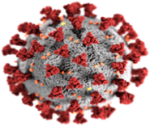 with our heavenly Father through faith in Jesus Christ is the most effective thing we can do in these times. “Make the Most High your dwelling” (vs. 9). He alone is infinite, eternal, all powerful in his wisdom, love and grace.
with our heavenly Father through faith in Jesus Christ is the most effective thing we can do in these times. “Make the Most High your dwelling” (vs. 9). He alone is infinite, eternal, all powerful in his wisdom, love and grace.
Even if evil comes, those who trust in Christ have “an inheritance that can never perish, spoil or fade–kept in heaven” (1Peter 1:4).
 (Let me know your thoughts on this subject. If you appreciate this blog, please pass it on. Further articles, books, and stories at: http://www.countrywindow.ca Facebook: Eric E Wright Twitter: @EricEWright1 LinkedIn: Eric Wright ––)
(Let me know your thoughts on this subject. If you appreciate this blog, please pass it on. Further articles, books, and stories at: http://www.countrywindow.ca Facebook: Eric E Wright Twitter: @EricEWright1 LinkedIn: Eric Wright ––)
January 16, 2021
There’s No Call Waiting on the Divine Phone.
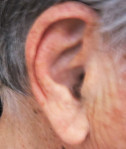 Suppose you have a personal crisis, where do you go for help? To someone powerful but distant like our Canadian Prime Minister, or to someone close at hand? Your mom or dad, your sibling or best friend? The answer seems obvious unless you are estranged from your loving family and friends. Well, if we are converted, God is our Father and Jesus is our friend. God invites us to take our problems to him for he is closer than our skin.
Suppose you have a personal crisis, where do you go for help? To someone powerful but distant like our Canadian Prime Minister, or to someone close at hand? Your mom or dad, your sibling or best friend? The answer seems obvious unless you are estranged from your loving family and friends. Well, if we are converted, God is our Father and Jesus is our friend. God invites us to take our problems to him for he is closer than our skin.
In this series of blogs on the attributes of God, we’ve been looking at God’s omnipresence. He is immense; he fills the whole universe. Although present, he is transcendent, that is—completely separate or distinct from all created things.  But that’s not all the truth about God. He is also IMMANENT; closer than our heartbeat. This is what astounded David in Psalm 139. “Where shall I go from your Spirit?…Where shall I flee from your presence?…up to the heavens You are there…in the depths, you are there” (vs 7,8). How much of God is there? Just a tiny fragment of his immensity? No, all of God.
But that’s not all the truth about God. He is also IMMANENT; closer than our heartbeat. This is what astounded David in Psalm 139. “Where shall I go from your Spirit?…Where shall I flee from your presence?…up to the heavens You are there…in the depths, you are there” (vs 7,8). How much of God is there? Just a tiny fragment of his immensity? No, all of God.
Have you ever wondered how God could be with Bashir in Pakistan and Betty in Belleville—at the same time? No wonder the Psalmist cried out in vs. 6, “Such knowledge is too wonderful for me, too lofty for me to attain.” This is beyond all experience and understanding.
 We’re used to trying to get through to a government department only to be shunted through a series of numbers and finally be told that the mailbox of messages is full. “Try again later.” Or we’re told that the number is no longer in service. Even in our homes we’re used to being distracted by Johnny climbing on the table while Sarah cries from her room.
We’re used to trying to get through to a government department only to be shunted through a series of numbers and finally be told that the mailbox of messages is full. “Try again later.” Or we’re told that the number is no longer in service. Even in our homes we’re used to being distracted by Johnny climbing on the table while Sarah cries from her room.
God is never distracted by a million people wanting his attention. He never postpones hearing our cries until he is free to listen. He never makes us wait. He gives to each of us his full attention. Impossible? Yes, impossible to anyone who is not immanent in his relationship to us as our Father and friend.
When David wrote in Psalm 23 that the LORD is our shepherd who leads us, it means he gives us the full attention of his love, mercy and wisdom. When David  exclaimed in Psalm 139 verses 17 and 18 that God’s thoughts toward us are precious and vast beyond counting, he is expressing incredulity at the way the infinite God focuses his concern, not generally on all mankind, but individually on each of us. It is Incredible!
exclaimed in Psalm 139 verses 17 and 18 that God’s thoughts toward us are precious and vast beyond counting, he is expressing incredulity at the way the infinite God focuses his concern, not generally on all mankind, but individually on each of us. It is Incredible!
What a God we serve; immense, transcendent and immanent in his omnipresence! Let these thoughts reverberate in our minds and move us to worship. And let’s remember them the next time we cry out for help. God is closer than our heartbeat.
 (Let me know your thoughts on this subject. If you appreciate this blog, please pass it on. Further articles, books, and stories at: http://www.countrywindow.ca Facebook: Eric E Wright Twitter: @EricEWright1 LinkedIn: Eric Wright ––)
(Let me know your thoughts on this subject. If you appreciate this blog, please pass it on. Further articles, books, and stories at: http://www.countrywindow.ca Facebook: Eric E Wright Twitter: @EricEWright1 LinkedIn: Eric Wright ––)



